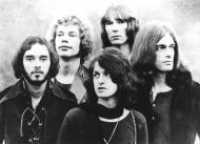Yes
You can say a lot of nasty things about progressive rock, and many people have -- most frequently, that the genre emphasizes musical chops over soulful expression. But in the case of Yes, the British band's often overbearing pretentiousness resulted in moments of rare grace and beauty, a bizarre and fleeting -- if totally unrealistic -- coupling of classical textures with rock & roll pathos.
Curiously enough, Yes' 1969 debut is a relatively down-to-earth affair -- and a not very inspired one at that. The quintet's reworking of the Beatles' "Every Little Thing" illustrates its knack for mysterioso, angelic harmonies, led by singer Jon Anderson. But the band's original compositions are sketchy at best. The psychedelic Time and a Word offers little improvement, perhaps because of the dubious decision to attach an entire symphony orchestra to the already cluttered arrangements.
It was the addition of Steve Howe's guitar pyrotechnics that finally allowed Yes to find their true identity. The Yes Album is a gigantic leap forward, with extended workouts such as the ethereal "Starship Trooper" emphasizing the band members' individual virtues. In Bill Bruford, Yes had a hip, jazzy drummer; in Chris Squire, a bassist willing to dominate the mix with his elephantine lines; and in Tony Kaye, an organist who used his Hammond sparingly, for funkier effect.
